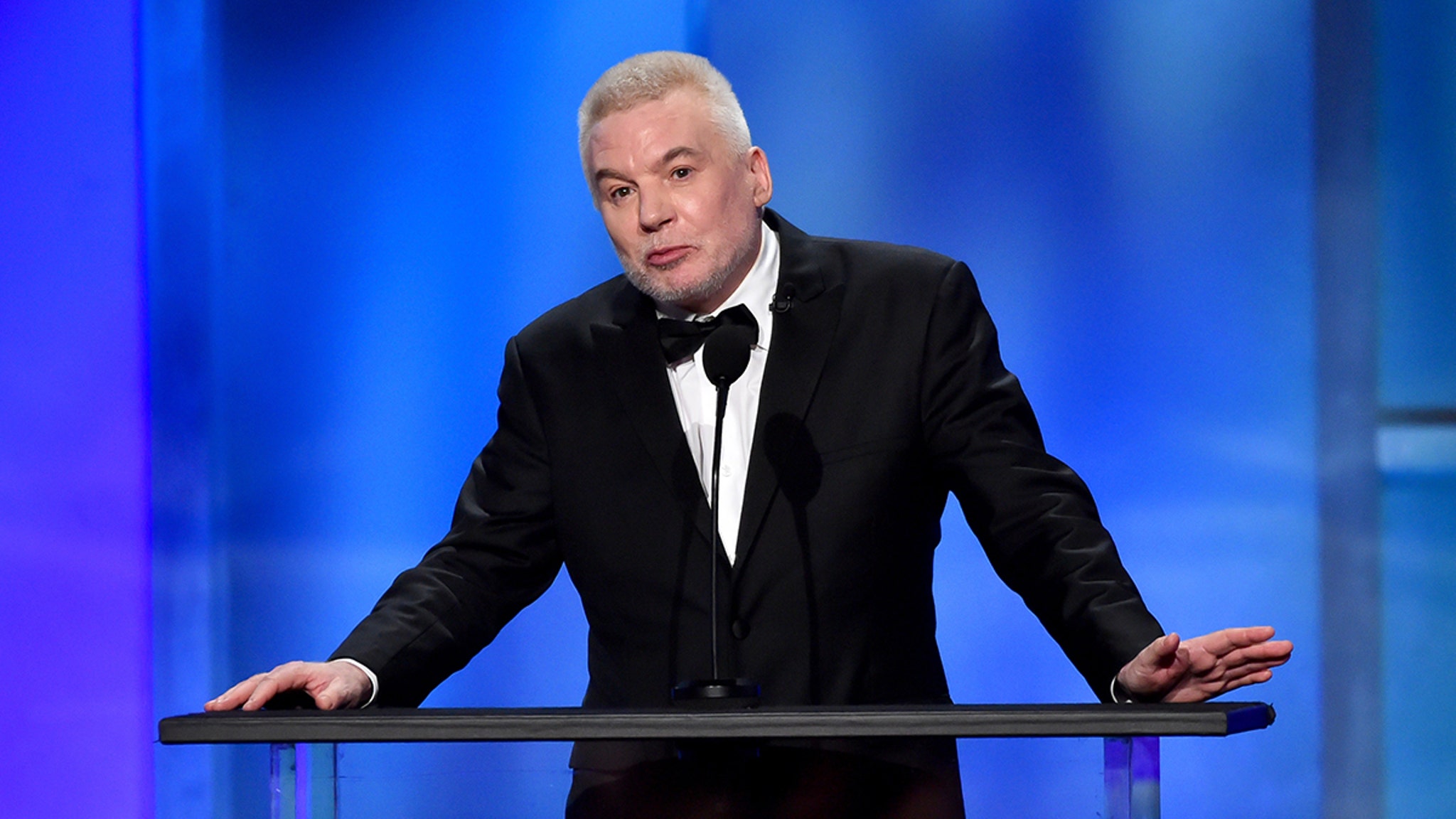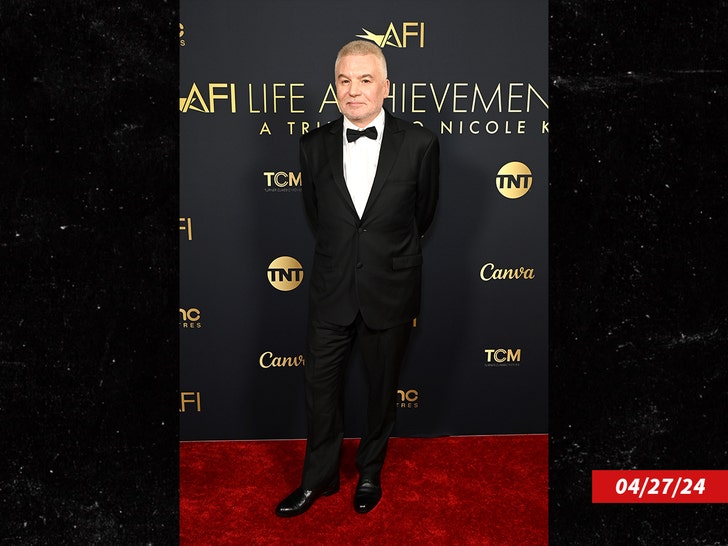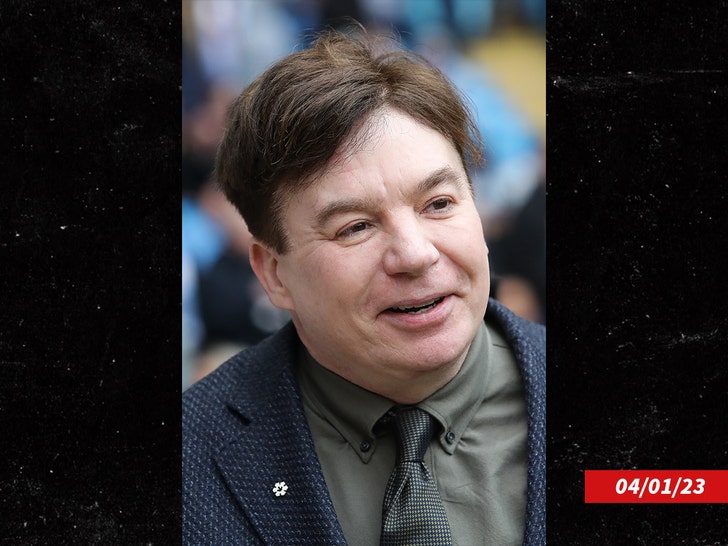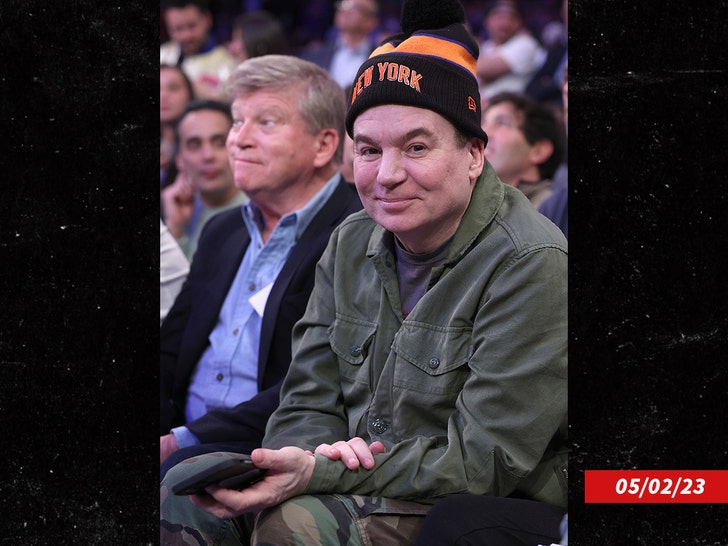Lifestyle
5 takeaways from Salman Rushdie's new memoir 'Knife'

Author Salman Rushdie at the annual gala of PEN America on May 18, 2023.
Ted Shaffrey/AP
hide caption
toggle caption
Ted Shaffrey/AP

Author Salman Rushdie at the annual gala of PEN America on May 18, 2023.
Ted Shaffrey/AP
On August 12, 2022, famed author Salman Rushdie was stabbed. He was on stage at the Chautauqua Institution in western New York, about to give a talk “about the importance of keeping writers safe from harm,” Rushdie writes in his new memoir, Knife: Meditations After an Attempted Murder.
Rushdie, the 76-year-old writer of The Satanic Verses, Midnight’s Children, Victory City, and more, survived the attack. But not without some lasting scars, including being blind in one eye. Since the attack, he’s done a handful of interviews here and there, but he’s kept mostly to himself. In Knife, he details everything that’s been going on in his life and in his head since the attack. He talks about the recovery process, the support he received from loved ones, and his feelings about his alleged attacker, Hadi Matar.


Matar is in custody at Chautauqua County Jail, being charged with second-degree attempted murder and second-degree assault. The judge in his case actually postponed Matar’s trial after Rushdie announced his memoir, in order to give Matar’s lawyers an opportunity to see what’s inside the book.
The book is out Tuesday. Here’s what you can expect from it:
1. Rushdie has no interest in re-litigating The Satanic Verses
Rushdie only makes a few mentions of his 1988 book that led the supreme leader of Iran at the time to call for Rushdie’s death. And, Rushdie notes in Knife, it wasn’t just the Muslim world criticizing Rushdie for writing the book. He calls out other names, including former U.S. President Jimmy Carter and the writers Roald Dahl and Germaine Greer. Besides that, Rushdie writes that he’s said everything he’s needed to say about Satanic Verses in his previous memoir, Joseph Anton.” If anyone’s looking for remorse, you can stop reading right here,” he writes in Knife. “My novels can take care of themselves.”
2. The book is about freedom of speech, particularly aimed at the left
Rushdie instead saves his argumentative energy to make an appeal for freedom of speech – an ideal, he believes, progressives and the left have left behind to their detriment. “This move away from First Amendment principles allowed that venerable piece of Constitution to be co-opted by the right,” he writes. Rushdie had a long background in free speech advocacy. He’s the former president of PEN America, the literary rights advocacy group, and co-founded that organization’s World Voices Festival. His first public appearance after being attacked was at a PEN Gala in his honor. And, if anything, the attack has only furthered his positions. “Art is not a luxury. It stands at the essence of our humanity, and it asks for no special protection except the right to exist,” he writes.
3. It’s also a book about marriage
In 2021, Rushdie quietly married the poet and novelist Rachel Eliza Griffiths. Rushdie is tender when he writes about the early days of their relationship, saying he was not looking for romance. “And then it came up behind me and whacked me behind the ear and I was powerless to resist.”
It’s Griffiths who helps Rushdie through the many doctor visits, physical therapy appointments, sleepless nights, mystery ailments and piling bills (a sub-takeaway could be, not even world-famous authors can avoid surprise medical bills), all while tending to her own writing career. There are tough moments that they have to go through together in the book, but there are also regular moments that could be scenes from any other marriage.
4. He tries to understand his attacker
Rushdie never refers to Matar by name in the book. And he maintains a certain distance from him. There’s a quick instance in the memoir where Rushdie toys with the idea of reaching out to Matar, but he quickly decides that’s a bad idea. Instead, Rushdie chooses a different route to understanding Matar that we won’t spoil here. But it is an exercise in deep empathy – one that seems to help Rushdie find at least a little bit of closure.
5. There’s a possible documentary on the way.
Early on in the book, Rushdie and Griffiths begin filming Rushdie’s thoughts. The plan seems to be to take all the footage and bring it to an experienced filmmaker, who can shape it into something. But there have been no announcements made on that front yet.

Lifestyle
As National Poetry Month comes to a close, 2 new retrospectives to savor

W. W. Norton & Company, Alice James Books

W. W. Norton & Company, Alice James Books
With National Poetry Month comes spring flowers and some of the year’s biggest poetry publications. And as April wraps up, we wanted to bring you two of our favorites — retrospective collections from two of the best poets of the late 20th and early 21st centuries: Marie Howe and Jean Valentine.
Howe’s New and Selected Poems makes a concise case for Howe’s status as an essential poet. The New & Collected Poems of Jean Valentine gathers all of the beloved late poet’s work, a monument to a treasured career.
New and Selected Poems by Marie Howe
Marie Howe is writing some of the most devastating and devastatingly true poems of her career — and some of the best being written by anyone. Her subject matter, from a bird’s eye, is simply the big questions and their non-answers: What are we here for? What does it mean to do good? What have we done to the environment? What are the consequences and what do we who are here now owe to those who will follow us? And yet her tone and straightforward delivery make her poems as approachable as friends. Howe is the rare poet whose poems one wants to hug closely for company, companionship, and empathy; and yet they are works of literature of the highest order, layered, full of booby traps and shoots and ladders that suddenly transport one between the words. It’s tough love that these poems offer, but it’s undeniably love.
This first retrospective gathers a book’s worth of new poems along with ample selections from of Howe’s four previous collections, each of which was a landmark when it was published. Her nearest antecedent might be Elizabeth Bishop, who also didn’t write very much, or didn’t publish very much, but everything she wrote was good if not capitol-G-Great. Howe is best know for What the Living Do (1997), which remains one of the great books on youth and grief, regret, and moving forward if not moving on. It regards a world in which “anything I’ve ever tried to keep by force I lost.” Startling, almost koan-like statements like this erupt out of unassuming domestic scenes, making everyday life into high drama.
The typical speaker of a Howe poem is a woman who seems much like Marie Howe, even when she is speaking through the voice of the biblical Mary, as she does in Magdalene (2017): “I was driven toward desire by desire.” She is serious except when she’s funny, though she’s rarely laugh out loud funny — it’s more of a kind of internal laughter, either like blossoming light or paper rustling in one’s chest. She is consoling, except when she is taking herself and readers to task, bowing under the simple, Herculean responsibilities that come with living a life, being a parent. She’s tough, sometimes even stoic, except that in almost every poem there is a moment of surprise, a revelation, a piercing insight that injects a kind of pure ecstasy.
Some of the new poems are among the best Howe has written, making them among the best period. Set “In the middle of my life — just past the middle,” these poems grieve lost friends; reckon with the sudden adulthood of a daughter; lament the destruction of the environment; and take the moral measure of this very disturbing era. Each of these everyday dramas becomes an access point for the deepest kind of human reconciliation, where we must finally admit where language fails us. These poems also feature a recurring character, “our little dog Jack,” who, with all best intentions, becomes one of Howe’s most devastating metaphors. But all metaphors have their root in plain fact. As Howe writes in “Reincarnation,” one of her best poems, “Jack may be actually himself — a dog.”
Light Me Down: The New and Collected Poems of Jean Valentine
This is one of those monumental events in American poetry: the life’s work of a major poet gathered in one big book, an opportunity to revel in all that Jean Valentine accomplished in her long and prolific career. As a young poet, Valentine (1934-2020) won the Yale Series of Younger Poets prize in 1965, for her debut collection, Dream Barker. In 2004, she won the National Book Award for Door in the Mountain: New and Collected Poems 1965-2003. In between, and after, she was always well regarded by the mainstream poetry establishment, winning most of the prizes available to an American poet.
But Valentine’s real influence was as a friendly ambassador to and from the avant-garde. It’s hard to pin Valentine’s poems down: I wouldn’t call them experimental, but they are anything but straightforward in their slippages of thought and wide leaps of association. Fairly early in her career, Valentine begin working in a style that had her teasing the reader with images, gently suggesting the way the poem should go, until, perhaps, a thunderclap at the end disturbs the calm. She always knows where to end. Pick almost any poem and the last couple of lines will shock you with their unlikely inevitability.
Valentine writes about everything — love, death, sex, the roiling political situations of the last half-century — with simultaneous candor and mystery: “I have been so far, so deep, so cold, so much,” she says prophetically in an early poem. She asserts that poetry can be made almost entirely through suggestion, that the poet must trust the secret links between one word and another, and trust that the reader will be willing to travel with the poet along those underground currents. In a short poem, a haiku from 1992, “To the Memory of David Kalstone,” dedicated to the literary critic who died in 1986, Valentine offers as succinct a statement of her poetics as one could want: “Here’s the letter I wrote,/ and the ghost letter, underneath—/ that’s my life’s work.” Valentine’s poems draw our attention to the words beneath the words, what’s said between them, in all the white space surrounding the poems.
Elsewhere Valentine opts for simple observations, stirred by a bit of mystery, as in the brief elegy “Rodney Dying (3)”:
“I vacuumed your bedroom
one gray sock
got sucked up it was gone
sock you wore on your warm foot,
walked places in, turned,
walked back
too off your heavy shoes and socks
and swam”
There are no sudden bolts of profundity here, nothing, really, that you could call insight, at least not overtly. Instead, Valentine asks an object, the sock, to carry the grief. This is a technique poets call the “objective correlative” — it’s an image that stands in for an emotion or knot of emotions. That unassuming object, or really just the word for it — sock — becomes a vessel, a kind of canopic jar to contain grief, but also to let it rattle around a bit. The poem ends with what might be an allegory for death, but is also a celebration of Rodney’s vitality. The language is as plain as can be, and yet I exit the poem with uncertainty, equally hopeful and despairing. Valentine is an expert at tensing these sorts of contradictions against one another. The emotional climate in Valentine’s poems is ambivalent in the best way, lit by contradictory energies.
And while this book is a monumental celebration of an extraordinary legacy, it is also sad to hold: Valentine was in an inexhaustible and generous force in American poetry until so recently. It feels impossible to accept the fact that she is dead while reading poems that are so profoundly alive.
Craig Morgan Teicher is the author of several books, including The Trembling Answers, which won the 2018 Lenore Marshall Poetry Prize from the Academy of American Poets, and the essay collection We Begin in Gladness: How Poets Progress.
Lifestyle
Mike Myers Debuts White Hair in First Public Appearance in Over a Year

Mike Myers returned to the spotlight for a rare public appearance this weekend … but folks had to do a double take, ’cause nobody could recognize him with his new hair color.
The actor stepped out Saturday for the 49th AFI Life Achievement Award Gala in L.A. — where Nicole Kidman was being honored — which marked his first time at a public event in about a year.

Mike looked unrecognizable with short white hair — but was rocking it proudly as he spoke onstage at one point … and posing for tons of pics before heading inside, all smiles.
He was even taking photos with fans too … acting goofy and posing for a bunch of selfies.
Mike has always kept a relatively low profile … as he and his wife, Kelly Tisdale, are known for keeping their home life super private. So, seeing MM out and about like this is pretty remarkable — especially since he’s a silver fox now, and totally leaning into it.

The last few times Mike was out in public was in April and May of 2023 — in April of that year, his was quite a bit longer … and more importantly, it was the same color of brown we’ve seen him in for years now.

In May, the guy was at a basketball game — with pretty damn good seats, it seems — but there … he was wearing a beanie, covering up his ‘do. Since then, he’s been kinda MIA.
Anyway, it was clearly a big enough occasion to get Mike out of the house and into the public eye again — remember, this was all about Nicole … and anyone who’s anyone showed up to give her her flowers, including a ton of celebs.
Among the stars in attendance … Reese Witherspoon, Joey King, Michelle Pfeiffer, Jane Seymour, Miles Teller, Naomi Watts, Morgan Freeman and lots of others.
Mike certainly stood out though … and we gotta say, he’s looking real sharp these days!
Lifestyle
In 'Dead Boy Detectives,' two best mates reject their deadly fates : Pop Culture Happy Hour

-

 Kentucky1 week ago
Kentucky1 week agoKentucky first lady visits Fort Knox schools in honor of Month of the Military Child
-

 News1 week ago
News1 week agoIs this fictitious civil war closer to reality than we think? : Consider This from NPR
-

 World1 week ago
World1 week agoShipping firms plead for UN help amid escalating Middle East conflict
-

 Politics1 week ago
Politics1 week agoICE chief says this foreign adversary isn’t taking back its illegal immigrants
-

 Politics1 week ago
Politics1 week ago'Nothing more backwards' than US funding Ukraine border security but not our own, conservatives say
-

 News1 week ago
News1 week agoThe San Francisco Zoo will receive a pair of pandas from China
-

 World1 week ago
World1 week agoTwo Mexican mayoral contenders found dead on same day
-

 Politics1 week ago
Politics1 week agoRepublican aims to break decades long Senate election losing streak in this blue state















